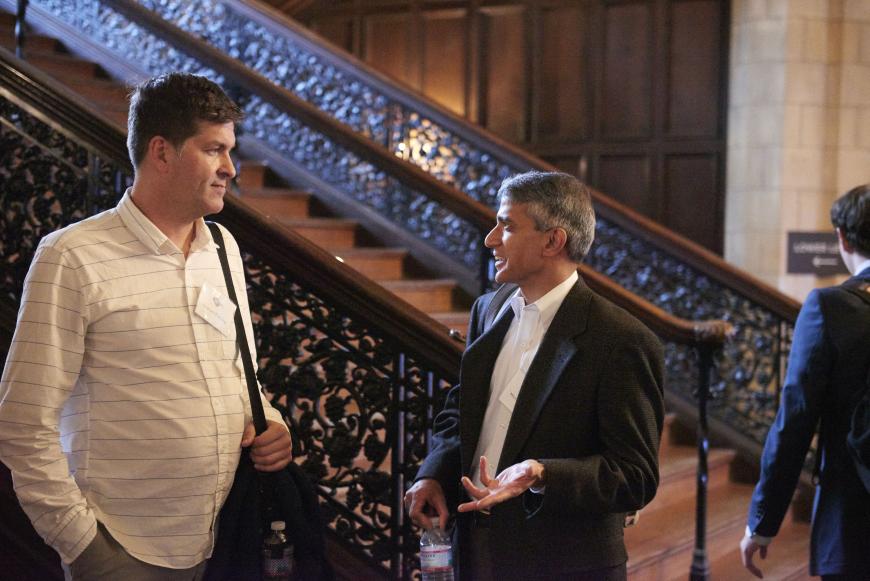December 1, 2015
 by Benjamin Recchie
by Benjamin Recchie
As part of its Mind Bytes 2015 research computing expo and symposium on October 27, 2015, the Research Computing Center partnered with UChicagoGRAD to present panel discussions aimed at students interested in computation about their career options, beyond traditional jobs such as computer programmer or college professor. Two panels were held: one for students in the humanities and one for students in STEM fields.
Careers in Computational STEM
The STEM Career panel was moderated by Borja Sotomayor, a lecturer at the Department of Computer Science, and included Michael D’Mello, a program manager and a senior technical consulting engineer at Intel; Nicholas Labello, a principal scientist at Pfizer; James Foster, the director of industrial process development research at Archer Daniels Midland; and Benedict Augustine, a lead data scientist at Uptake Technologies.
Each of the panelists recounted something from their own careers; D’Mello, for instance, joked “My background was in scattering theory, and if you know anything about it, you question whether there’s any use for it, ever.” But those scattering experiments taught him how to manage data and memory—widely applicable skills.
When asked where they acquired their skills—in the classroom, on the job, or on their own time—the panelists gave differing answers. Augustine said he learned most of his on the job, with the rest on his own time from Coursera. D’Mello and Labello said they learned most of what they need to know on their own time; Foster learned Fortran in school but admitted “I hate programming”—which goes to show that not all analytical positions are code-heavy.
Careers in Digital Humanities
The Digital Humanities panel was moderated by Jeffrey Tharsen, Computation Digital Humanities Consultant at RCC. It included Jennifer Guiliano, assistant professor in the Department of History at the Indiana University-Purdue University Indianapolis; Alex Gil, the digital scholarship coordinator for the humanities and history, and affiliate faculty of the English and Comparative Literature Department, at Columbia University; and Roopika Risam, assistant professor of English at Salem State University.
The panelists agreed that digital platforms have the ability to reach a global audience and provide resources unhindered by institutional constraints. Furthermore, digital humanities isn’t a specific discipline or field of study, but rather a system of social networks and computational tools which can be applied broadly. Since “digital humanities” isn’t a career, but rather a set of tools that complements tools that academics are taught, their career advice was not to try to make digital humanities a career. Rather, they suggested to attendees that they do whatever they wanted to do or study, figure out what they wanted to do with technology, then make that technology work for them toward that end.
If you missed the panels at Mind Bytes, UChicagoGRAD has many more resources on career planning for graduate students.